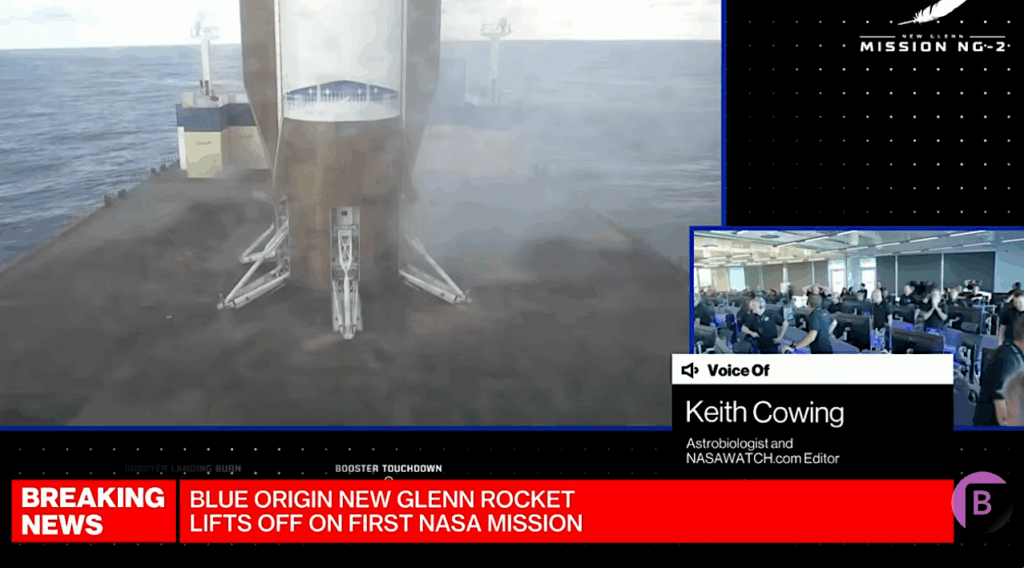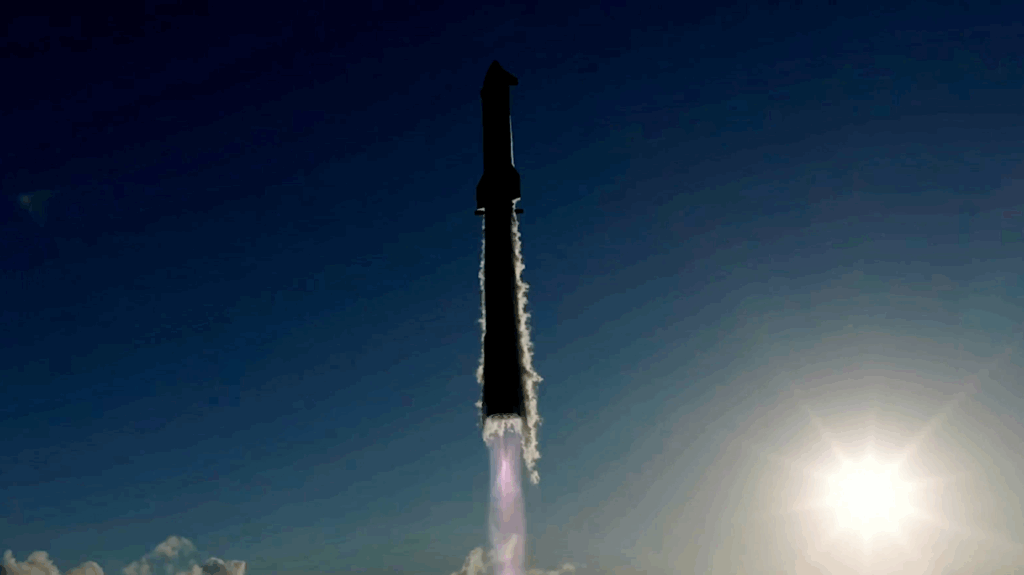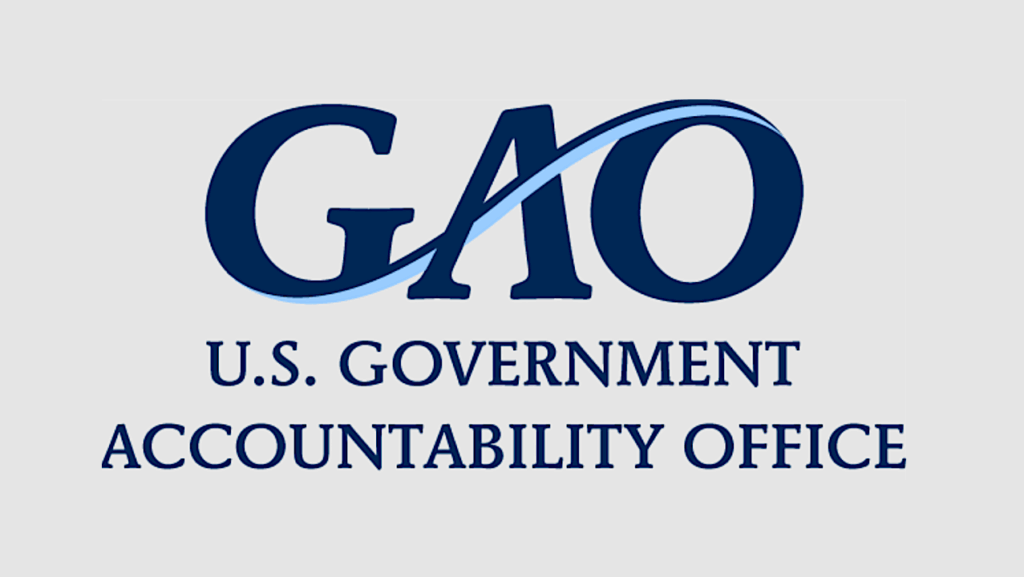Right Now Earth Is Hard And Space Is … Easier
FYI @SpaceX: Brian Williams on MSNBC on the recovery of the fairings from the most recent Falcon 9 launch. "We can't fly to Europe but we can use a boat with a net to catch a piece of metal falling back to Earth from outer space … for @ElonMusk its just Tuesday." #SpaceX pic.twitter.com/PaDhvr5Zms
— NASA Watch (@NASAWatch) July 22, 2020









Here’s the clip.
https://twitter.com/LoomisP…
Reminiscent of the old adage “If we can put a man on the Moon why can’t we (xyz)”. Generally meaning that if our best and brightest can solve a problem this challenging and complex why can’t we solve some of the seemingly simpler problems here on Earth.
Williams seems pretty unambiguous in his point (especially when viewing the clip) which is that if the U.S. government had reacted differently during the initial outbreak then maybe the U.S. would have made it onto the list of travel approved countries to Europe. Although while hard to disagree with that I think to be fair things were also affected by the actions (or lack thereof) of state and local governments. And although probably not a popular opinion, I think a bit more voluntary compliance among more of the U.S. populace would have helped also.
Was stopping the spread of COVID-19 in the U.S. easier than catching a fairing in a net? Maybe. I guess so. Then again I really don’t know.
My usually reaction to someone tossing out the “If we can … then why can’t we” line is that they are being smug, cynical, or just overly simplistic. But usually on further reflection I think it is good to look at achievements that were at one time seen as difficult or seemingly impossible, then use this as inspiration as we turn to other problems, and have confidence that by applying “the best of our energies and skills” as Kennedy said in his Rice speech, that we can solve these problems also.
The “… why can’t we” comparisons are comparing a well-defined engineering challenge (that was known to be within our technical capabilities if enough money was thrown at it) to a problem that at the roots is as much or more a social/political problem. The latter problems are generally much, much more difficult to solve even if you throw money at them.
When you say the why can’t we comparisons (plural) I am not sure if you are referring to just the Williams comparison or the Moon landing comparisons, or both. What Williams said seems similar to the common usage of the Moon landing comparisons, which have been used for a wide variety of topics. Sometimes they have been a comparison of technical challenges, or logistical challenges, or amounts of money spent, but as often as not they are used to compare priorities, i.e the willingness to take a problem seriously.
We can only ask Brian Williams exactly what comparison he was making in this case. SpaceX demonstrated that you don’t even always have to throw a lot of money at a problem, at least in this particular example of catching fairings, you just have to decide that it is a problem that you want to solve and then take the right steps to solve it. Of course taking the right steps also requires having really smart people on board who make good decisions and also think outside of the box, something that is often lacking in both corporate and government organizations.
Comparing this to stopping the spread of COVID-19? Again I don’t know, as I indicated my initial reaction is that the comparison is way oversimplified, and possibly just being snarky as someone said. But regardless of the motive, as I said I think when something amazing has been accomplished it’s not bad to question, in a positive way, whether the lack of progress on a completely different problem might be due to a lack of commitment, or resources, or competence, or a combination of the above. Although being less snarky about it often helps.
I don’t think that they’re ready to swallow the biosecurity measures that the federal government will insist on for the first Starships and their crews to come back from Mars!
You mean our Mars ships will have to wear masks? Unthinkable!
More like the quarantine period after returning to Earth. And it may be much longer than 14 days, and self-isolation in a hotel wouldn’t be an option. Try a military-rule trailer home, which is about what the facilities used for Apollo 11 and 12 were. Actually, the requirements would probably be more rigorous than that. With Apollo, there was very little evidence to even hint at the possibility of life on the Moon. So the precautions were just based on an “overabundance of caution” and being really, really safe. With the potential for past or even extant life on Mars, I think you can count on much more stringent measures.
Yes, but also remember that the Moon is only three days away. By contrast the many months it will take to return from Mars in a crowded spaceship will actually make a very effective quarantine. The need rather than for an Earth surface quarantine will be an option for them to enter and stay in LEO, with resupply, if anything emerges. This is why having enough fuel to enter orbit around the Earth with their ship should be a required part of any planning for Mars mission with humans aboard.
https://upload.wikimedia.or…
I prefer the phrase that Omni magazine used back in the 80s “The Meek Shall Inherit the Earth. The Rest Of Us Will Go ToThe Stars”
Snark. Pure & simple. As presented it isn’t emphasizing the positive but instead is highlighting an interpreted (beyond the reality of the specifics) negative.
This comes from a dark place and it offers very little (if any) constructive/reflective good, certainly not with its tone. It might even do harm.
I am curious, but exactly what should the United States had done differently in January and February to stop the virus from spreading here?
Incidentally if you follow the international news you will see that Hong Kong is on its third wave of infections while some countries in Europe are seeing a second wave…
Quarantine everyone entering the US from China or Europe for two weeks, exactly as is required now for everyone entering the UK from the US, or Hawai’i from the rest of the states. But hindsight tis aways marvelous.
A national mandate to wear masks on day one which was recommended by the CDC? Instead the president said it was a hoax. Now you have armed anti maskers screaming hoax and storming businesses.
https://www.youtube.com/wat…
What a quaint question!
Here’s one thing: we can eschew the notion that anyone posting here has the knowledge or ability to actually answer that question.
What a non-informed and non-expert can do is simple: get experts involved, and early, as it was well known that the existing knowledge base was sparse; we could have listened to warnings that this was serious and would be come more serious. And most critically, avoided the political nonsense.
More broadly: the American notion that anyone can be president is what got us into this mess; refusing to recognize that experience counts, and that running our government is a necessarily large entity requiring deep knowledge. And we could have not accepted the still widely held notion that somehow a ‘businessman’ is actually qualified because ‘he’s met a payroll’ is simply laughable. Business and government are entirely different enterprises.
As we have learned.
Earth will get easier, just give it some time.
Let’s have some perspective here, SpaceX has been working on fairing recovery for years, they started adding parachute to fairing in 2017, started trying to catch them in 2018. The recent success is built on years of hardwork and many failures, SpaceX makes them look easy, but they really are not.
The coronavirus has only been with us for 7 months, and in this short time the pharmaceutical industry has made tremendous progress in terms of therapeutic and vaccines, I think we’ll see these efforts turning the tide in next few months, we just need to be patient.
Mr. Musk’s perseverance should be mentioned positively with that of Mr. Edison. Musk should be celebrated for willingness to keep trying, and to try different approaches, ever sharpening the sword.
Recognizing that we were facing a national problem, preparing a national response, rather than avoiding any responsibility while forcing state governors into bidding against one another.